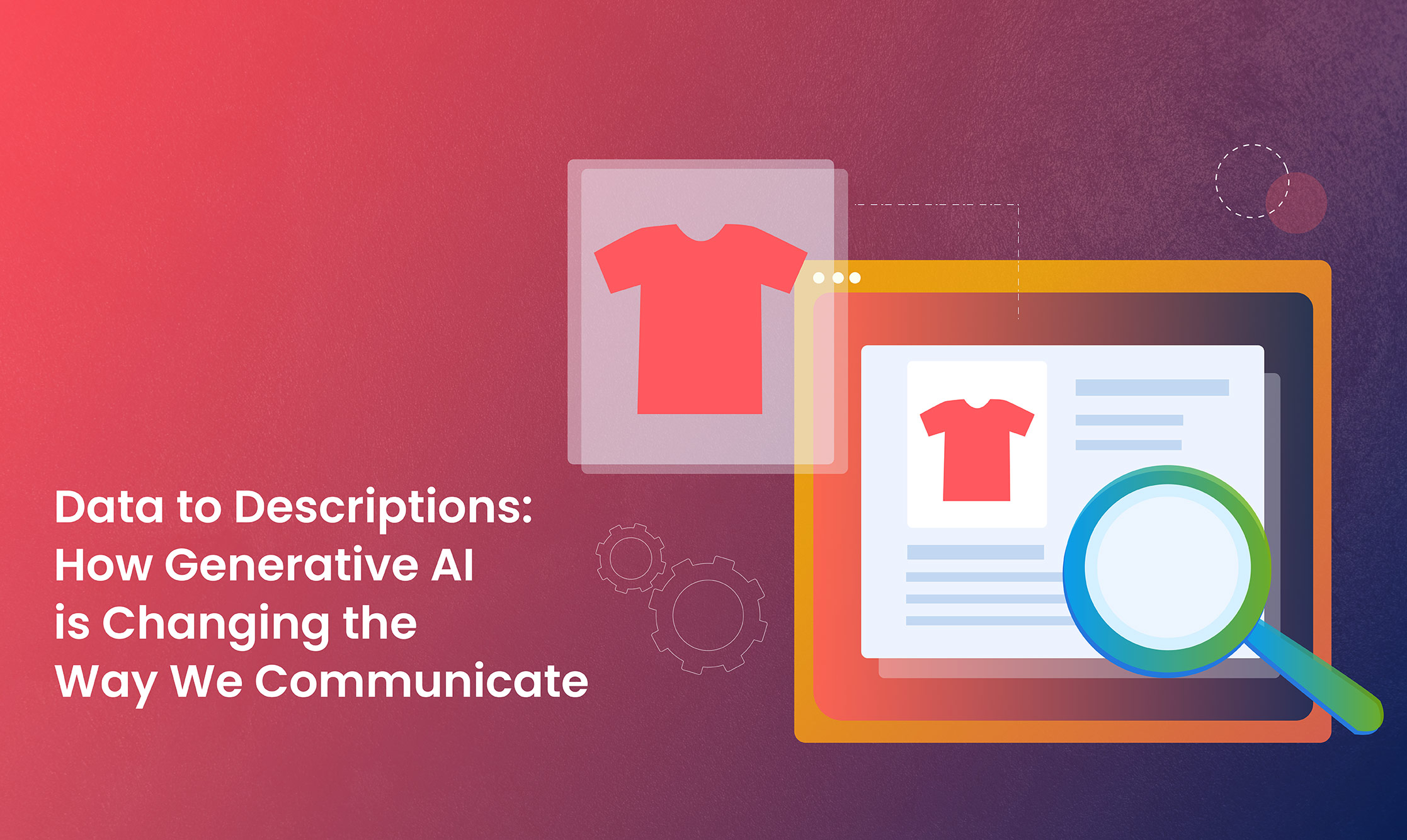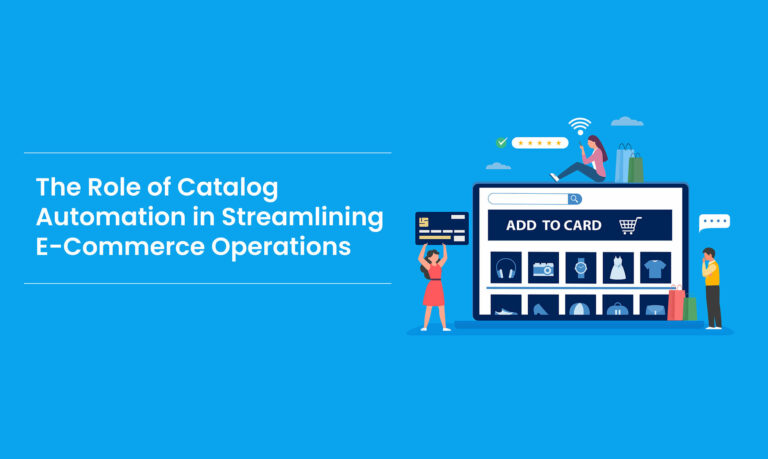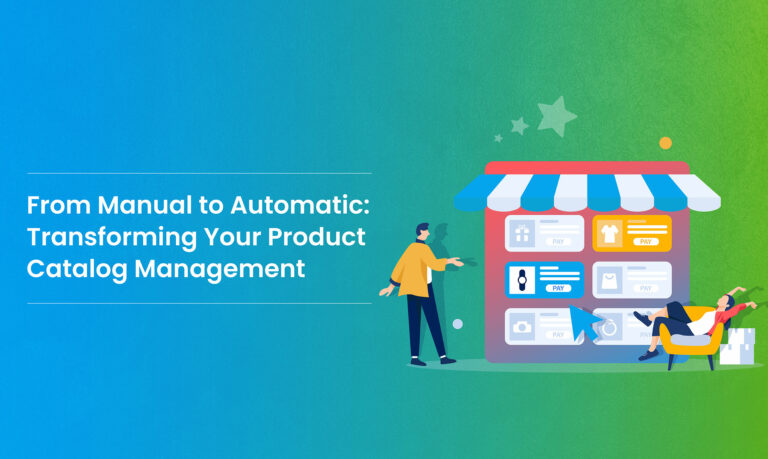The growth of e-commerce catalogs has been revolutionary in today’s digital industry. These catalogs are dynamic, interactive platforms that adjust to consumer tastes and market trends, no longer merely static listings of products. E-commerce catalogs are now strategic tools for increasing sales and improving customer interaction rather than just being a showcase for products. They have taken on a crucial role in determining the profitability of online retail firms by utilizing AI. Generative AI, which has transformed online retail’s catalog management and display, is largely responsible for this change. AI-enhanced e-commerce catalogs provide real-time updates, effective management, and personalized buying experiences. They create rich, compelling experiences that connect with customers rather than just listing things. This development emphasizes how critical it is to adjust to the constantly shifting needs of the online market.
Introduction
E-commerce, an ever-evolving realm of consumerism, thrives on the digital presentation of products through comprehensive catalogs. In the not-so-distant past, traditional catalogs were tangible entities, flipping through pages to discover products. Today, however, the landscape has drastically transformed into a dynamic and digital ecosystem, necessitating a paradigm shift in catalog management. This article is on a journey to explore how generative AI is disrupting the traditional norms of e-commerce catalog management. Buckle up as we uncover the untapped potential of generative AI in reshaping the very foundation of online retail catalogs.
The Evolution of E-commerce Catalogs
The evolution of e-commerce catalogs unfolds as a captivating narrative, intricately weaving through the fabric of digital transformation. From the humble beginnings of static, paper-based listings to the dynamic and responsive digital catalogs of today, this evolution mirrors the seismic shifts in consumer behavior and technological advancements. Early catalogs merely showcased products; however, the digital age propelled them into dynamic entities capable of real-time updates, personalization, and interactive engagement.
The transition marks a pivotal moment where traditional retail methods gave way to online marketplaces, necessitating the adaptation of catalogs. The rise of mobile shopping and the integration of AI has further propelled this evolution. E-commerce catalogs are more than just lists of products today. They are immersive experiences crafted to resonate with the ever-evolving expectations of digital consumers. This journey through the evolution of e-commerce catalogs serves as a milestone in the industry’s adaptability and commitment to delivering exceptional online shopping experiences.
Catalog Management in the Digital Age
Catalog management has transcended its conventional role, evolving into a strategic imperative for online retailers. The digital age has ushered in a plethora of challenges and opportunities, fundamentally altering the way products are curated, displayed, and interacted with by consumers.
- The Digital Metamorphosis: The transition from physical to digital catalogs marks a pivotal shift in the e-commerce paradigm. In the digital age, catalogs are no longer static compilations of products but dynamic entities capable of adapting to the ever-changing demands of consumers. The ability to update, revise, and optimize catalog content in real-time has become a cornerstone of a successful online store.
- Endless Aisles, Endless Choices: As online marketplaces continue to grow, the sheer volume of products available to consumers has expanded exponentially. Catalog management now extends beyond mere organization; it involves curating an experience for the customer amidst a vast array of choices. Navigating these “endless aisles” requires not only efficient organization but also an intuitive and personalized presentation tailored to individual preferences.
- Personalization and Customer Engagement: Customers crave a personalized shopping experience. Catalogs are no longer static lists but dynamic showcases that adapt based on user behavior, preferences, and purchase history. Effective catalog management involves leveraging data analytics and AI to deliver targeted content, creating a seamless and engaging journey for each visitor.
- SEO Optimization and Discoverability: With the saturation of online marketplaces, ensuring the discoverability of products is paramount. Catalog management in the digital age extends to updating content for search engines, improving visibility, and driving organic traffic. SEO-optimized product listings and descriptions play a crucial role in elevating the online presence of e-commerce platforms.
- Mobile-Centric Experiences: The ubiquity of smartphones has shifted consumer behavior towards mobile-centric shopping experiences. Catalog management must adapt to the preferences of on-the-go shoppers, necessitating responsive designs, intuitive navigation, and concise yet compelling product presentations.
Generative AI’s Impact on E-commerce Catalogs
In the bustling realm of e-commerce, where digital shelves are as crucial as physical storefronts, the advent of generative AI heralds a transformative era. This cutting-edge technology is not merely a tool but a catalyst reshaping the very fabric of how e-commerce vendors catalog their products and how they are managed, presented, and experienced.
- Dynamic Product Descriptions: Generative AI introduces a paradigm shift in crafting product descriptions. Instead of static, template-driven content, this technology harnesses the power of machine learning to curate unique and persuasive descriptions for each item dynamically. The result is not just a list of features but a compelling narrative that resonates with the target audience.
- SEO Optimization at Scale: The marriage of generative AI and SEO is a game-changer for e-commerce catalogs. AI algorithms analyze search patterns, identify relevant keywords, and seamlessly integrate them into product descriptions. This not only enhances the discoverability of products but also elevates the overall search engine visibility of the entire catalog, driving organic traffic.
- Personalization Precision: Tailoring the shopping experience to individual preferences is the holy grail of modern e-commerce, and generative AI is the key to achieving personalization at scale. By analyzing user behavior, purchase history, and demographics, AI algorithms dynamically adjust catalog content, presenting products that align with each customer’s unique tastes and preferences.
- Efficient Catalog Management: The sheer volume of products in an e-commerce catalog can be overwhelming for traditional management systems. Generative AI smoothens this process by automating the creation, updating, and optimization of product listings. This not only saves time but ensures that the catalog is always current and reflective of the latest inventory.
- Enhanced Visual Content: Beyond text, generative AI extends its prowess to visual content. From dynamically generated product images to interactive displays, AI-driven visual elements enhance the overall appeal of the catalog. This immersive experience captivates the audience and increases the likelihood of conversion.
- Adapting to Trends in Real-Time: E-commerce trends are ever-evolving, and staying ahead requires agility. Generative AI allows catalogs to adapt to market trends in real-time, ensuring that the product lineup remains relevant and appealing. Whether it’s incorporating seasonal themes or responding to emerging consumer preferences, AI keeps catalogs fresh and engaging.
Advantages of Rubick.ai’s Product Description Tool
Get ready to revolutionize the way you present your products and set the stage for unparalleled e-commerce catalog success. Here are the benefits of Rubick.ai’s product description tool:
- AI-Enhanced Product Descriptions for Maximum Impact: Elevate your product descriptions to new heights with our cutting-edge AI tool. Crafted for perfection, our solution utilizes advanced algorithms to weave SEO-optimized keywords seamlessly into your product descriptions. This ensures not only enhanced search engine visibility but also attracts qualified traffic, setting the stage for maximum conversion.
- Unlock the Power of Persuasion with AI-Generated Content: Transform ordinary product descriptions into persuasive narratives that resonate with your audience. Our AI solution is designed to generate content that goes beyond the ordinary, honoring the essence of your products and compelling potential customers to take action. Experience the art of persuasion with our revolutionary AI-powered content generation.
- Tailored Keywords, Tailored Success: Say goodbye to generic keyword stuffing. Our AI tool tailors SEO-optimized keywords specifically to your products, ensuring a harmonious blend of relevance and visibility. Watch as your products rise through search rankings, reach the appropriate audience, and drive qualified traffic to your online store.
- Effortless SEO Integration for Enhanced Visibility: Seamlessly integrate SEO-optimized keywords into your product descriptions without lifting a finger. Our AI solution takes care of the intricate process, enhancing the overall visibility of your products across search engines. Stay ahead in the digital marketplace with effortlessly optimized content that caters directly to your target audience.
- Maximize Conversion with AI Precision: It’s not just about attracting traffic; it’s about converting that traffic into loyal customers. Our AI solution ensures that your product descriptions are not only enticing but strategically crafted to maximize conversion. Elevate your online presence and turn potential leads into satisfied customers with the precision of AI-generated content.
Conclusion
In the fast-paced world of e-commerce, where every click matters, the way you present your products can define your success. Rubick.ai‘s tool is a game-changer. It crafts product descriptions that transcend the ordinary, seamlessly integrating SEO-optimized keywords to enhance visibility and attract qualified traffic. The art of persuasion embedded in every description ensures that your products not only capture attention but also drive meaningful conversions. As you navigate the digital marketplace, consider the impact of precision – from tailored keywords to persuasive narratives. Explore the possibilities, captivate your audience, and transform your product descriptions into compelling narratives.


